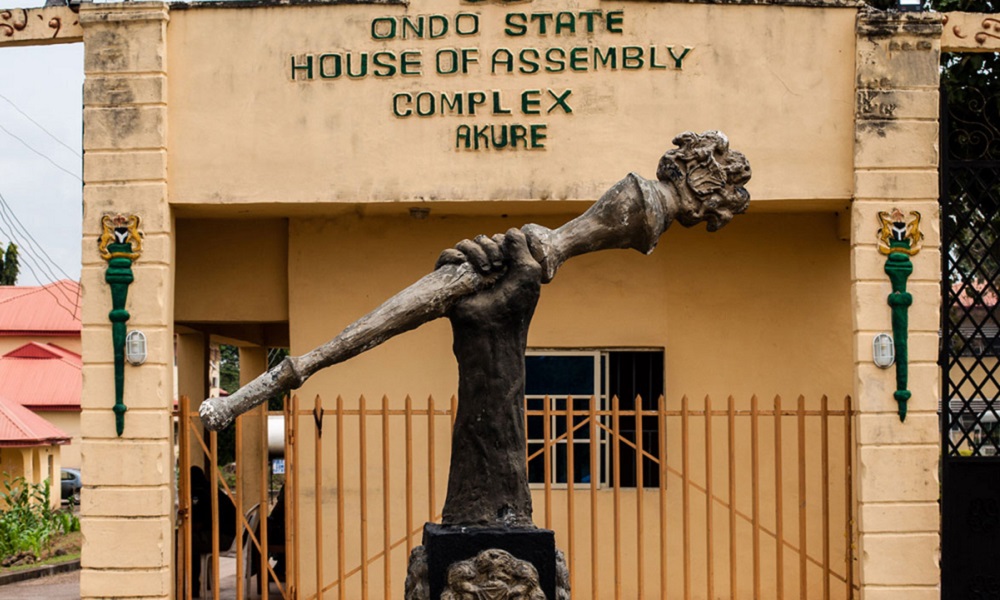News
Alcohol Kills 2.6 Million Drinkers Annually, Says WHO

By Kayode Sanni-Arewa
Alcohol kills nearly three million people annually, the World Health Organization said on Tuesday, adding that while the death rate had dropped slightly in recent years it remained “unacceptably high”.
The United Nations health agency’s latest report on alcohol and health said alcohol causes nearly one in 20 deaths globally each year, through drunk driving, alcohol-induced violence and abuse, and a multitude of diseases and disorders.
The report said 2.6 million deaths were attributed to alcohol consumption in 2019 — the latest available statistics — accounting for 4.7 per cent of all deaths worldwide that year.
Nearly three-quarters of those deaths were in men, it said.
“Substance use severely harms individual health, increasing the risk of chronic diseases, mental health conditions, and tragically resulting in millions of preventable deaths every year,” WHO director-general Tedros Adhanom Ghebreyesus said.
He pointed out that there had been “some reduction in alcohol consumption and related harm worldwide since 2010”.
“(But) the health and social burden due to alcohol use remains unacceptably high,” he continued, highlighting that younger people were disproportionately affected.
The highest proportion of alcohol-attributable deaths in 2019 — 13 per cent — were among people aged 20 to 39, the WHO said.
Drinking is linked to a slew of health conditions, including cirrhosis of the liver and some cancers.
Of all the fatalities it caused in 2019, the report found that an estimated 1.6 million were from noncommunicable diseases”
Of these, 474,000 were from cardiovascular diseases, 401,000 from cancer and a huge 724,000 from injuries, including traffic accidents and self-harm.
Alcohol abuse also makes people more susceptible to infectious diseases such as tuberculosis, HIV and pneumonia, the report found.
An estimated 209 million people lived with alcohol dependence in 2019 — 3.7 per cent of the global population.
Total per capita consumption worldwide decreased slightly to 5.5 litres of alcohol in 2019 from 5.7 litres nine years earlier, the report found.
However, alcohol consumption overall is unevenly distributed around the globe.
Well, over half of the world’s population over the age of 15 abstains completely
Europe accounted by far for the highest levels of per capita drinking, at 9.2 litres, followed by the Americas at 7.5 litres.
The lowest consumption was in predominantly Muslim countries in Northern Africa, the Middle East and Asia, the report said.
Among people who drank alcohol in 2019, the report determined they consumed 27 grammes of pure alcohol per day on average.
That is roughly equivalent to two glasses of wine, two small bottles of beer or two shots of spirits.
“This level and frequency of drinking is associated with increased risks of numerous health conditions and associated mortality and disability,” the WHO warned.
In 2019, a full 38 per cent of current drinkers acknowledged having engaged in heavy episodic drinking, defined as consuming at least 60 grammes of pure alcohol on one or more occasions in the preceding month.
Globally, 23.5 per cent of 15- to 19-year-olds were considered current drinkers.
That jumped to more than 45 per cent for people in this age group living in Europe, and to nearly 44 per cent in the Americas.
The WHO said it was essential to improve access to quality treatment for substance use disorders.
In 2019, the proportion of people contacting such treatment services ranged from below one per cent to 35 per cent in countries providing this data.
“Stigma, discrimination and misconceptions about the efficacy of treatment contribute to these critical gaps in treatment provision,” Vladimir Poznyak, head of WHO’s unit for alcohol, drugs and addictive behaviours, told reporters.
News
Army acquires 43 drones, wings 46 Turkey-trained personnel

The Federal Government has bolstered the Nigerian Army’s operational capacity with the acquisition of 43 Bayraktar TB2 drones, primarily for deployment in the North-West theatre of operations.
The Commander of the Nigerian Army Space Command, Brig. Gen. U.G. Ogeleka, disclosed this on Tuesday during the winging ceremony of 46 personnel trained in the operation and maintenance of the drones.
The initiative, codenamed Project Guardian, aims to strengthen military operations against insurgency and other security challenges in the region.
“Between May and September 2022, a team of 35 officers and 11 soldiers from the Nigerian Army’s routinely piloted aircraft system regiments underwent specialised training in Turkey on the operation and maintenance of the Bayraktar TB2 drones,” Ogeleka said. “The training crew included multi-piloted aircraft pilots, mission operators, avionics, and mechanical engineers and technicians.”
Out of the 46 trained personnel, 14 are multi-piloted aircraft pilots, seven are mission operators, and 23 are engineers and technicians.
Ogeleka presented 22 of the trained personnel for the winging ceremony, noting that the others are actively engaged in operational duties.
The Chief of Army Staff, Lt. Gen. Olufemi Oluyede, praised the acquisition of the drones and the training of personnel as significant steps toward enhancing the army’s professionalism and combat readiness.
“The winging of these 22 officers and soldiers as pilots and certified maintenance engineers is a morale booster for others in service,” Oluyede said. “It confirms their readiness to operate and maintain the Turkish Bayraktar TB2 drones in our inventory.”
Oluyede further revealed plans to procure additional unmanned aerial systems in the coming year to strengthen military operations across all theatres in the country.
The drones will play a critical role in addressing security challenges in the North-West, a region plagued by banditry and insurgency.
Their advanced surveillance and strike capabilities are expected to significantly enhance the Nigerian Army’s operational effectiveness.
This development underscores the government’s commitment to leveraging technology to improve national security and highlights the Nigerian Army’s drive to modernize its arsenal and build capacity within its ranks.
With more unmanned aerial systems set for acquisition, the military’s ability to conduct precise, real-time surveillance and combat operations is poised for substantial improvement.
News
Ondo Assembly mulls 10-year jail term for land grabbers

The Ondo State House of Assembly is considering a bill that proposes harsh penalties for land grabbers, including up to 10 years imprisonment for forceful entry or illegal takeover of properties.
Governor Lucky Aiyedatiwa has further reinforced the fight against land grabbing by signing an Executive Order to prohibit such activities.
The order aims to end forceful entry, illegal occupation of landed properties, and fraudulent or violent conduct related to land in the state.
To strengthen enforcement, the governor has established a Task Force to protect property rights, uphold the rule of law, and ensure a secure environment for property owners and residents.
The proposed bill also includes severe penalties of up to 21 years imprisonment for selling family land without the consent of the family head or secretary.
Hon Moyinolorun Ogunwumiju, the lawmaker representing Ondo West Constituency 1, who sponsored the bill, spoke during a public hearing on the bill
Hon Ogunwumiju assured stakeholders that the bill would improve land administration, protect landowners, attract investors, and foster peace and development in the state.
He explained that the bill sought to regulate land dealings, protect landowners and buyers, penalise encroachers, and criminalise unregistered agents.
Ogunwumiju said the bill proposed penalties of up to 10 years’ imprisonment for forceful entry or takeover of properties and up to 21 years for selling family land without the consent of the family head or secretary.
Speaker of the Assembly, Hon Olamide Oladiji, urged committee members and stakeholders to ensure the bill served the interests of the people.
He said the bill would maintain order in the state and impose necessary sanctions on offenders.
“Land grabbers pose a significant threat to property acquisition. Their activities ranging from trespassing, forceful occupation, and illegal sales of properties to multiple buyers must be confronted decisively.”
Majority Leader and Chairman of the House Committee on Rules and Business, Oluwole Ogunmolasuyi, said the bill, would benefit the society at large
Ondo Commissioner for Justice and Attorney General, Kayode Ajulo said the bill would enhance land administration and complement the executive order signed by Governor Aiyedatiwa.
Stakeholders including traditional rulers called for full implementation of the bill when signed into law.
News
FG earmarks N250bn for Lagos-Abuja rail project in 2025 budget

The federal government has made an allocation of N250 billion in the 2025 budget for the Lagos–Abuja mass transit rail project.
This budgetary investment is part of a broader plan to revitalize Nigeria’s infrastructure and stimulate economic growth.
The government’s focus on infrastructure development is rooted in the belief that it is a cornerstone of long-term economic planning.
By investing in critical infrastructure such as roads, railways, energy, healthcare, and education, the administration aims to create a conducive environment for both domestic and foreign investment.
The Lagos-Abuja rail project, in particular, is expected to have a transformative impact on the Nigerian economy.
By improving transportation connectivity between two major economic hubs, the project will facilitate the movement of goods and people, reduce logistics costs, and stimulate economic activity.
Additionally, the project is expected to create numerous jobs, both directly and indirectly, contributing to the country’s overall employment rate.
The government’s infrastructure investments are also aimed at addressing regional disparities.
By connecting different parts of the country through improved transportation networks, the administration hopes to stimulate economic growth in underserved regions, reduce poverty, and promote equitable development.
The 2025 budget signals the government’s commitment to transforming Nigeria’s infrastructure landscape.
By investing in critical projects like the Lagos-Abuja rail line, the administration aims to lay the foundation for a more prosperous and connected Nigeria.
However, the success of these initiatives will depend on effective planning, efficient implementation, and transparent governance.
-

 News21 hours ago
News21 hours agoGov Adeleke Speaks On Death Sentence For Chicken Thief
-

 News21 hours ago
News21 hours agoDelta Assembly pardons two suspended members
-

 News17 hours ago
News17 hours agoNetizens Slam Lawmakers As They Sing Tinubu’s Anthem At Budget Presentation
-

 News14 hours ago
News14 hours agoFinally, PDP Flushes Out Suspended National Vice Chairman, Ali Odefa
-

 News22 hours ago
News22 hours agoJust in: CBN Imposes N100k Bar on PoS, Issues Warning to Operators
-

 News11 hours ago
News11 hours agoReps Call for Revival of NAPAC to Boost Transparency, Accountability
-

 News21 hours ago
News21 hours agoHeavy Security Presence at National Assembly as President Tinubu Presents 2025 Budget
-

 News10 hours ago
News10 hours agoReps Recommends Delisting NECO, UI, Labour Ministry, 21 Others From 2025 Budget








